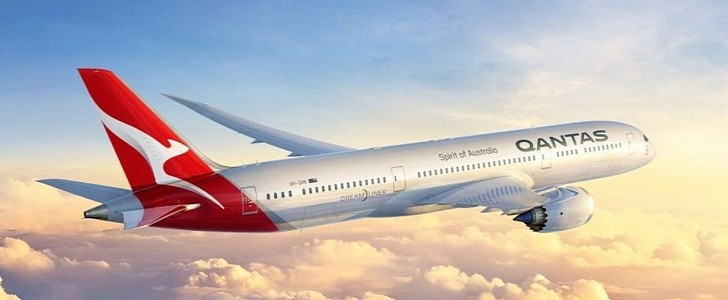SAF (sustainable aviation fuel) is considered the fastest solution for green commercial flights because it doesn’t require engine modifications. But the problem with it is that it’s still not produced on a large scale and therefore not cheap. Two major players in the industry have joined forces to change that.
Both Airbus and the Australian Qantas airline have been committed to supporting zero-emission operations through various means. One of them is the use of SAF. At the moment, Qantas is getting its SAF from overseas, from the UK and the U.S. Earlier this year, it signed an agreement with the Californian green jet fuel producer Aemetis. Starting 2025, this California-made biofuel will power the airline’s flights from Los Angeles and San Francisco to Australia.
But in order to extend the use of alternative fuel, Qantas needs access to locally-produced SAF. Right now, Australia is exporting massive quantities of feedstock which is then turned into SAF in other countries, but it does not produce its own supply.
This is why it has joined forces with Airbus for the Australian Sustainable Aviation Fuel Partnership, meant to fund local projects for the production of green jet fuel. Pratt and Whitney is also a partner in the project. Its GTF engines will power the A220 and A320neo aircraft that are part of the Australian operator’s new fleet.
Qantas has also recently ordered the A350-1000 for its non-stop flights from Australia to New York and London, as well as the A220 and A321XLR for its domestic fleet. These modern, efficient aircraft will reduce carbon emissions on their own, by up to 25%, through reduced fuel consumption. But they are also certified to operate with 50% SAF, which will lower carbon emission levels even more.
This new collaboration is meant “to help kick start a local biofuels industry in Australia,” but additional funding from other industry players and from the government is needed in order to make SAF more easily available and affordable.
But in order to extend the use of alternative fuel, Qantas needs access to locally-produced SAF. Right now, Australia is exporting massive quantities of feedstock which is then turned into SAF in other countries, but it does not produce its own supply.
This is why it has joined forces with Airbus for the Australian Sustainable Aviation Fuel Partnership, meant to fund local projects for the production of green jet fuel. Pratt and Whitney is also a partner in the project. Its GTF engines will power the A220 and A320neo aircraft that are part of the Australian operator’s new fleet.
Qantas has also recently ordered the A350-1000 for its non-stop flights from Australia to New York and London, as well as the A220 and A321XLR for its domestic fleet. These modern, efficient aircraft will reduce carbon emissions on their own, by up to 25%, through reduced fuel consumption. But they are also certified to operate with 50% SAF, which will lower carbon emission levels even more.
This new collaboration is meant “to help kick start a local biofuels industry in Australia,” but additional funding from other industry players and from the government is needed in order to make SAF more easily available and affordable.







